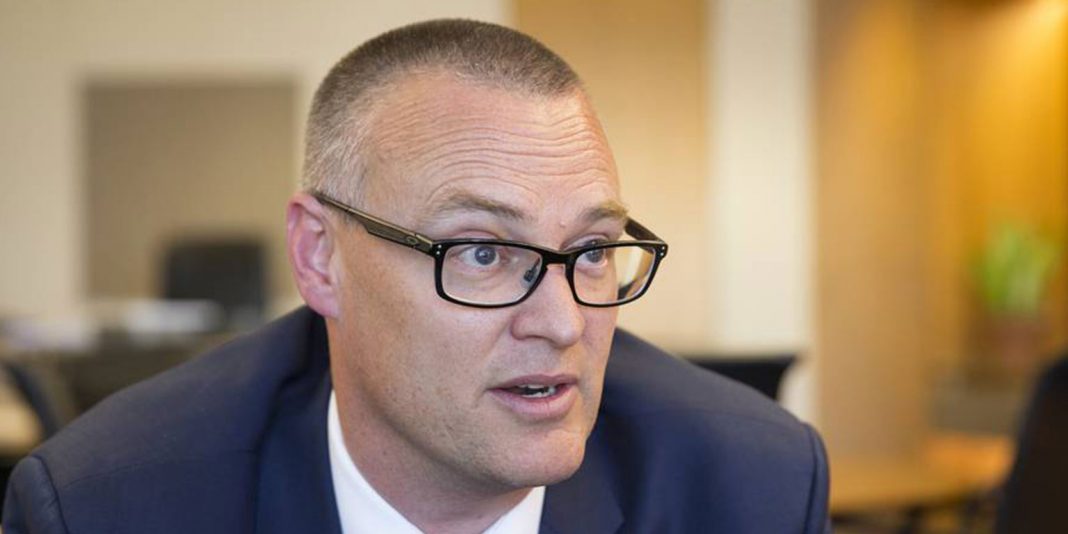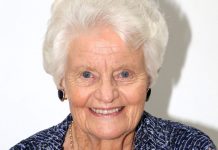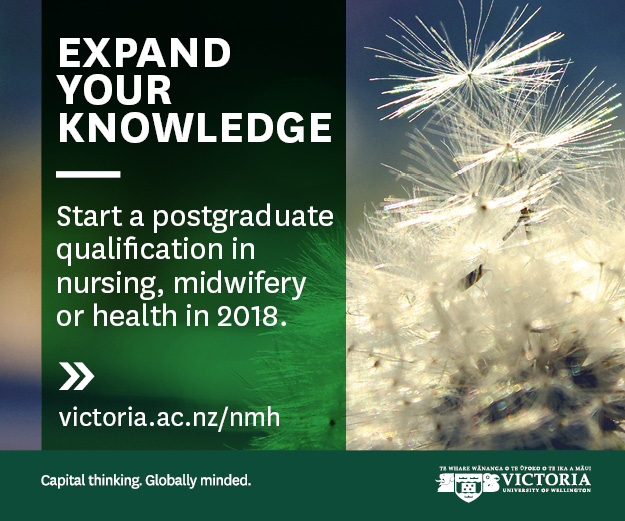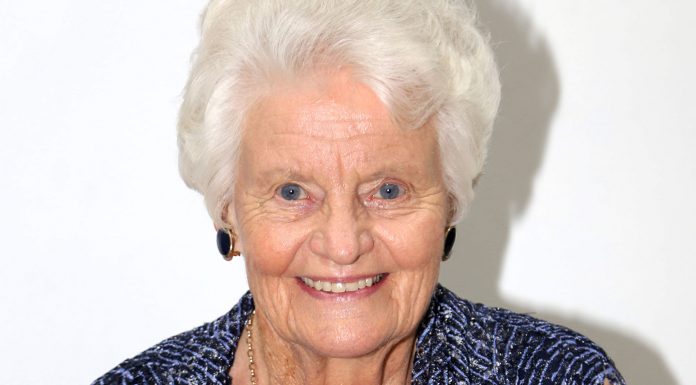Health Minister David Clark says he’s keen to see nurses working at the top of their scope and is excited about the new Acts coming into force on 31 January that will encourage this.
More than a decade in the making, the Health Practitioners (Replacement of Statutory References to Medical Practitioners) Bill was passed in late 2016 but the changes made will only come into effect on 31 January. The Bill amended eight Acts to replace references to ‘doctors’ or ‘medical practitioners’ where nurse practitioners (NPs), nurses and other health practitioners are now qualified to carry out those roles.
“One of the things I’m most excited about is overseeing the enactment of this legislation that is coming in at the end of the month,” said Clark.
“This means that nurses will be able to issue sick notes for work and NPs can issue death certificates,” he said.
The Bill will also remove the current anomaly where NPs can sign ACC forms and sickness benefit forms but cannot sign a certificate for ordinary sick leave from work.
Roles changing under the new legislation (see full details at end of story) include:
- signing death certificates
- taking blood specimens from drunk drivers
- declaring people unfit to drive
- prescribing controlled drugs
- signing sick leave certificates.
Outgoing chief nursing officer Jane O’Malley described the passing of the bill in 2016 as the “culmination of years of work” from the nursing sector, the Ministry of Health and other agencies.
“We’ve got to make the most of particularly the nursing workforce, with its 53,000 nurses who oversee the largest unregistered workforce in the sector,” said Clark. “If we have these people active and practising at top of scope, there’s a huge opportunity for our health system to deliver more care within the fiscal restraints that we have.”
The Minister talked about the legislative changes in an interview with Nursing Review this week in which he also discussed pay expectations and briefly touched on pay relativity for nurses working in sectors such as aged care and Māori and iwi health providers.
Clark said pay relativity was something that needed to be looked as part of the primary health care review. It is understood that the terms of reference are currently being worked on for the review of the primary care funding system promised by the incoming government within its first 18 months.
“I do want to see different models of care looked at,” said Clark. “I think that is required if we’re going to have a sustainable sector that actually delivers better access to quality care for New Zealanders.
“We need to recognise that in many areas, particularly those that are rural or underserved, they have workforces – and nursing workforces – that are actually practising at the top of their scope.” Clark said he believed that was where the opportunities were – ensuring that people were supported to practise at the top of their scope.
Clark added that his job as Minister of Health was to defend the interests of the patient.
“I’m not there to represent any particular workforce but to ensure the best outcomes for the public patient, and that involves ensuring that the workforce is sustainably funded and we have healthy workforces and safe staffing levels.
“I think the only reason our health system is in the good shape that it is, is because of the good grace of the workforces that have been subject to underfunding over the last nine years,” Clark told Nursing Review.
He said the new Government was committed to putting that money back into the sector, but it would take time. It would also take time to build a sustainable health workforce and the capacity to employ more new graduate nurses, he said.
LEGISLATION CHANGES FOR 2018
- Seven of the amendment Acts with their new terminology will commence on 31 January 2018 and the Transport Amendment Act will commence on 8 November 2018.
- The amendments enable competent health practitioners (as defined under the Health Practitioners Competence Assurance Act 2003 or HPCA Act) working within their prescribed scope of practice (e.g. registered nurses) to carry out new roles as defined by the amended Acts.
- This does not mean that all health practitioners regulated under the HPCA Act will be able to undertake all the amended statutory functions.
- The Ministries of: Health; Transport; Business, Innovation and Employment; and Social Development are responsible for the affected legislation. Other agencies, including ACC and the New Zealand Police, will also need to implement the changes.
AMENDED ACTS
Holidays Act 2003: Health practitioners will be able to certify proof of sickness or injury.
Burial and Cremation Act 1964: Nurse practitioners will be able to issue certificates for the cause of death for patients in their care.
Medicines Act 1981: Nurse practitioners will be able to supervise designated prescribers (such as authorised registered nurse prescribers or RN prescriber candidates).
Mental Health (Compulsory Assessment and Treatment) Act 1992: Nurse practitioners, or registered nurses working in mental health, will be allowed to complete a health practitioner certificate for applications for assessment under the Act. An NP will also be able to conduct an assessment examination if approved by the Director of Mental Health. The Director can delegate this approval to the Director of Area Mental Health Service.
Accident Compensation Act 2001: Health practitioners providing treatment to a client will be given the opportunity to participate in preparing clients’ individual rehabilitation plans. Suitably qualified health practitioners will also be able to prescribe aids and appliances.
Oranga Tamariki Act 1989 (formerly the Children, Young Persons, and Their Families Act 1989): Health practitioners will be able to carry out medical examinations ordered by the court when considering whether children or young people have been abused, if the court considers that these health practitioners are qualified for that purpose. In addition, a social worker will be able to ask for medical examinations to be completed by health practitioners qualified for that purpose.
Misuse of Drugs Act 1975: Nurse practitioners, registered nurses working in addiction services and pharmacist prescribers will be allowed to prescribe controlled drugs for the purposes of treating addiction.
Land Transport Act 1998: Health practitioners will be able to request blood tests from drivers and assess and report on their fitness to drive. It will be illegal for someone to refuse a blood test from a health practitioner. Other amendments enable health practitioners to take blood, handle evidential specimens and appear in court to give evidence.






















re: “Health Minister David Clark says he’s keen to see nurses working at the top of their scope and is excited about the new Acts coming into force on 31 January that will encourage this.”
I am very concerned regarding the opening statement of this news bulletin and the term utilised in this sentence and within the document as a whole. What exactly is “top of their scope” and what does this mean?
Registered and Enrolled Nurses are required by law to work within their scope of practice. Under the HPCA Act, every nurse has a scope of practice – there is no “top” mentioned nor defined within NCNZ definitions and terminology. By using words like “top” are we subjecting nurses to judgements of their practice? What does top mean? With ‘top’, there must be a ‘bottom’ and no nurse working safely and competently within their scope of practice deserves to be at risk of this judgement.
‘Expanding practice’ or ‘advancing practice’ are terms used by the Nursing Council of New Zealand (NCNZ) when referring to increasing the role of the RN. The NCNZ has stated “Registered nurses who have developed their expertise may expand their practice beyond the established contemporary or ‘traditional’ scope of practice to include new technology, increasingly autonomous roles, management of health consumers with chronic conditions and through activities previously considered within the scope of other health professionals” (NCNZ, 2011, p9).
I would suggest that the Minister of Health needs to refer to the correct terminology when discussing the practice of his 53,000-strong nursing workforce.
Reference:
Nursing Council of New Zealand [NCNZ] (May, 2011). Guideline: Expanded practice for Registered Nurses.